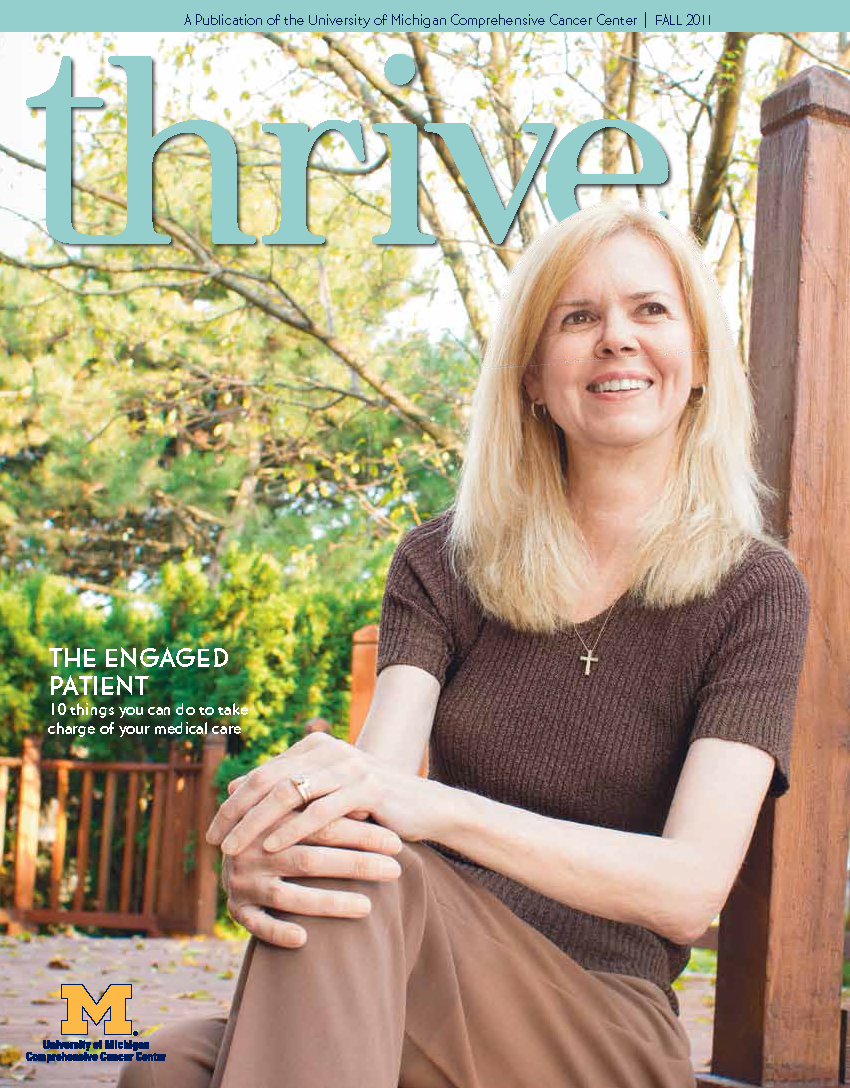Fall, 2011

The culture of medicine has changed: Gone are the days when doctors dispensed treatment with a paternalistic air. As medicine has advanced, patients have more choices about how they can approach their care. Combined with the vast amount of health information available on the Internet, patients are educating themselves and partnering with their physicians to make informed medical decisions.
In partnership with the Michigan Medicine's Guest Assistance Program and Cancer Center Business Services, the Practical Assistance Center can help patients navigate the often complex logistics involved in cancer care.
Ruth Freedman and Maria Lyzen, members of the U-M's Breast Cancer Advisory & Advocacy Committee. The committee was originally created to offer University of Michigan researchers suggestions as they developed new clinical studies, but now offers input on improving all aspects of breast cancer care.
U-M Rogel Cancer Center develops program with Cancer Support Community to help patients and caregivers cope. The program, called FOCUS, is based on University of Michigan research that has shown that patients and caregivers benefited from meeting with a nurse to provide them with information and support.
Some people with cancer may experience loss of appetite or taste. Others may not be able to eat because of a blockage or pain when swallowing. No one wants to give up eating, but when it becomes more of a hindrance or a burden, a feeding tube may offer relief.
Larry Stone is back to playing the guitar after the U-M Symptom Management & Supportive Care Clinic helped him find relief from pain and numbness.
University of Michigan Rogel Cancer Center's Symptom Management and Supportive Care Program offers tips on how to keep track of medication.
